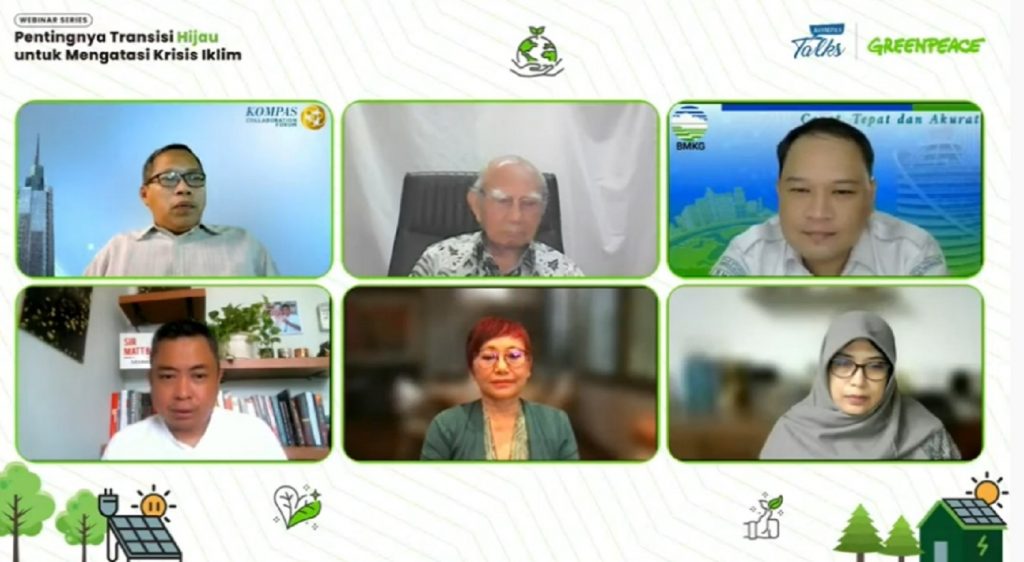
JAKARTA – Indonesia’s rich renewable energy resources does not guarantee a smooth energy transition. Challenges include its expensive price compared to fossile fuel, Head of Environmental Economic Studies Institute for Economic and Community Research (LPEM) Faculty of Economics and Business, University of Indonesia, Alin Halimatussadiah said in a webinar, Wednesday (2/3).
She said that the energy transition “requires regulatory support, from large, medium to small usages. It is ironic that although our country is rich in renewable energy sources but its utilization is not optimal. Moreover, renewable energy (price) is not competitive enough compared to fossil fuels,” said Halimatussadiah in KompasTalks webinar with Greenpeace with the theme ‘The importance of a green transition to overcome the climate crisis’.
Planning and targeting the use of green energy has made some progress. However, she believed that the government needs to be more serious in terms of policy derivatives and commitments on the ground.
Halimatussadiah said an ecosystem is needed that regulates the competition, including providing fiscal and non-fiscal incentives on the use of green energy, adding that the process at the consumer level must also be simplified.
Changing economic structure
Halimatussadiah explained that the transition to renewable energy will also have an impact on changes in the economic structure. The process is important to be regularly monitored to find out the proportion of shifting sectors, including in the provision of taecology and human resources.
Transitioning away from the use of fossil energy to green or renewable energy is a way to reduce impacts of the climate crisis in the future. If the transition fails, climate change will not only lead to an environmental crisis, but also an economic and humanitarian crisis.
Senior economist and Indonesia’s first environment minister Prof. Emil Salim said, the transition to green energy is very important to overcome the climate crisis. Burning fossil energy, such as coal and oil, releases pollutants into the air that increases the earth’s temperature. “We have to change the pattern of development from dirty energy (fossil fuels) to clean or green energy,” he said.
Adequate human resources are needed to empower these green energy sources so that they can meet future energy needs. Emil said this was a way out so that Indonesia could be free from dependence on dirty energy. “If the earth gets hotter, it will lead to hell on earth. Plants and animals cannot survive, humans will also face a crisis,” he added.
Head of the Center for Applied Climate Information Services of the Meteorology, Climatology and Geophysics Agency (BMKG) Ardhasena Sopaheluwakan said climate change had caused a trend of rising temperatures in Indonesia. In addition, the impact also triggers extreme rainfall that causes flooding in some areas.
Another impact is the melting of ice at Puncak Jaya in Papua. Currently, the surface of the ice there is already above freezing, about 5 degrees Celsius. “It is certain, in the next few years, we will lose the area that we know as eternal snow,” he said.
Head of Greenpeace Indonesia’s Climate and Energy Campaign Tata Mustasya said failure to address the climate crisis would also lead to economic and humanitarian crises. Extreme weather that triggers a disaster will have a negative impact on the economic sector.
“We have built the economy the wrong way. Since the beginning of the Industrial Revolution (1750), development has always been side by side with fossil energy. Now we have to make amends,” he said. (Hartatik)













